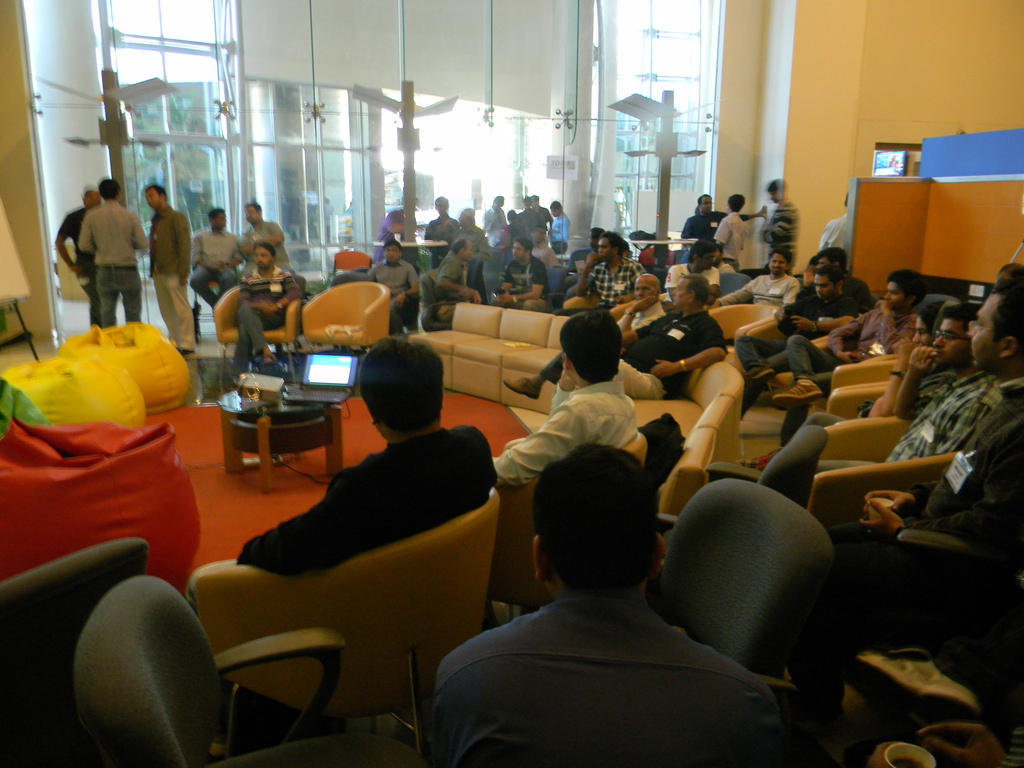(This article is the first part of a three-part series on The Startup Scene in India.)
Earlier this year, Bowei Gai and Benjamin Joffe came out with the India Startup Report – as a part of their World Startup Report initiative. The full report can be viewed here:
Some key takeaways from the report are enlisted below:
1. India vs. China:
India is following an entirely different growth path from China when it comes to startups and technology; in some areas, it’s unlikely that it will ever catch up with China, while in other areas, e.g. in tablet and smartphone usage, it could very well overtake China’s growth in the near future.
2. Key Players:
A few, big startup successes in India are highlighted, including Flipkart (E-Commerce, valued at $800M), Inmobi (Mobile Ads, valued at $1B), Snapdeal (E-Commerce, valued at $200M), and Myntra (E-Commerce/Fashion, valued at $100M).
3. People, Media, and Events:
Emphasis is given to a list of popular angels, incubators and accelerators, including The Startup Centre and The Morpheus, and Angel Groups/VCs, including 500 Startups and Sequoia Capital, among others. Also included is a list of prominent media, e.g. YourStory.in, StartupDigest, conferences, e.g. TechSparks, NASSCOM, meetups and events, e.g. Startup Weekend, In50Hours.
4. Competition:
[pullquote]“India is not simply emerging, it has emerged.” – Barrack Obama[/pullquote]
India has a fast-growing, young ecosystem, with relatively limited number of startups. The risk-averse culture in India leads to less competition than in US or China. Competition is primarily focused on the E-Commerce sector, and Angels/VCs rarely compete for deals, leading to lower startup valuations. This lack of overall competition hurts the startup ecosystem in terms of quality, valuations, and market-building.
5. Surprises:
Many Internet companies are solving big infrastructure issues, e.g. Flipkart is building its own shipment and cash-on-delivery solutions to solve issues with poor logistics and payment infrastructures; redBus provides software/devices to bus companies to build missing ticket infrastructure. On the other hand, trust in online stores remains an issue, so E-Commerce companies are effectively participating in market-building. Usually high interest rates which leads investors to put more money in real estates, gold investments and traditional cash-flow businesses. Some other issues include, fewer returnee rate, “India time” (whereby poor infrastructure and chronic traffic issues mean that meetings and events often start very late), slow decisions due to committee mentality, but despite difficult conditions, people seem content and optimistic in general.
6. High Social Risk:
Startup founders might have trouble getting married due to the risk factor associated with startups. So, to convince someone to join your startup, you will likely end up having to convince their entire family. Traditional entrepreneurs continue to grow in numbers, however – they are mostly small-business owners and risk-averse, sticking to traditional cash-flow businesses and family-run businesses. Due to the traditional cash-flow mindset, startups that can monetize quickly are favored by both entrepreneurs and investors.
7. Talent:
There are plenty of engineers, but few specialized experts, i.e. senior developers, designers, marketers, product managers. Engineers go on to pursue further management studies for a better paycheck. IIT forms the core talent of engineers in India, but it’s definitely possible to hire talent from other school with good internship programs, like BITS. Job sites are useless in this regard – sticking with recruiters or your own network is recommended.
8. Policies:
[pullquote align=”right”]“In China, things happen because of the government. In India, things happen in spite of it.” – Mukund Mohan[/pullquote]
India has strict rules against foreign multi-brand retailers, e.g. Walmart, BestBuy, and major foreign investments in the same are forbidden; this is likely to change soon as the laws continue to evolve, however. Startups seeking capital from Indian investors tend to incorporate in India, while the ones seeking foreign investments tend to incorporate offshore, e.g. in Delaware or Singapore. The new startup tax, whereby angel investments are taxed at 30% (for any amounts that exceed accounting laws of a fair valuation), are causing unnecessary annoyance to startups and investors, but will not deter the continued investments in India.
9. Opportunities:
India has missed the PC revolution, but will it catch up in the phone/tablet revolution? Organized retails only accounts for 7-8% of the total retail market; what remains to be seen is how and when the retail market will change, and who will change it. The country’s infrastructure needs quite some work; India is open to privatizing some of this infrastructure -can a startup come into the picture in this regard? 70% of the current population still lives under $2 a day; would innovations affect and improve the quality of life for these people?
10. Advice:
- For Local Entrepreneurs – Stay in India for potential unfulfilled opportunities; there’s no need to reinvent the wheel. Try getting into an incubator/accelerator to avoid a lot of mistakes that early startups make – also, easier to find mentors and funding this way. If you have to come to the US, many US startups have Indian co-founders – reach out to them for help and guidance.
- For Foreign Entrepreneurs – Many Indian startup successes will come from returnees/foreigners – this opportunity won’t last long, however, so come soon if you have to. Be bold and tackle the big business opportunities there are, and find an Indian co-founder who can guide you through the complicated business and social pathways.
- For Foreign Angels – It’s safe to invest in India for exploratory purposes; need to have realistic expectations for your investment, however. IPOs are virtually non-existent, and most local angels aim for series B exits or small acquisitions. Co-invest with reputable, already established organizations, and let the local investment groups complete your due diligence.
- For Foreign Companies – India is an easier market to break into than China; talent is cheap and regulations are good. Online companies like Google, Facebook and Twitter, can easily win, whereas companies relying on offline infrastructure, e.g. eBay and Amazon, are gradually getting overtaken by local competitors. Patience is key – business in India progresses slower than usual due to the poor infrastructure, slower pace of life, and a general lack of motivation.
So, what are some of the main challenges that are currently being faced by India’s startup ecosystem, and what can we do to improve things? Watch this space for our take on this, and more – in the next two parts of our three-part series on The Startup Scene in India.











